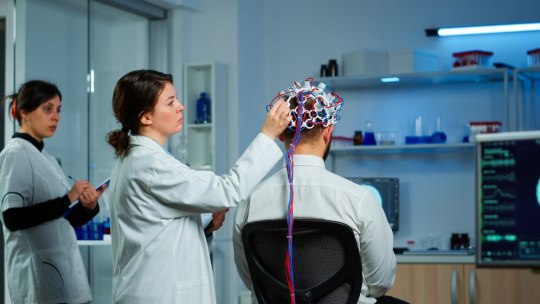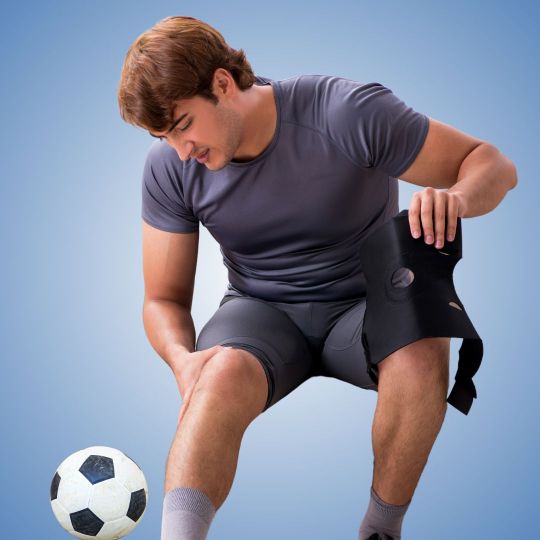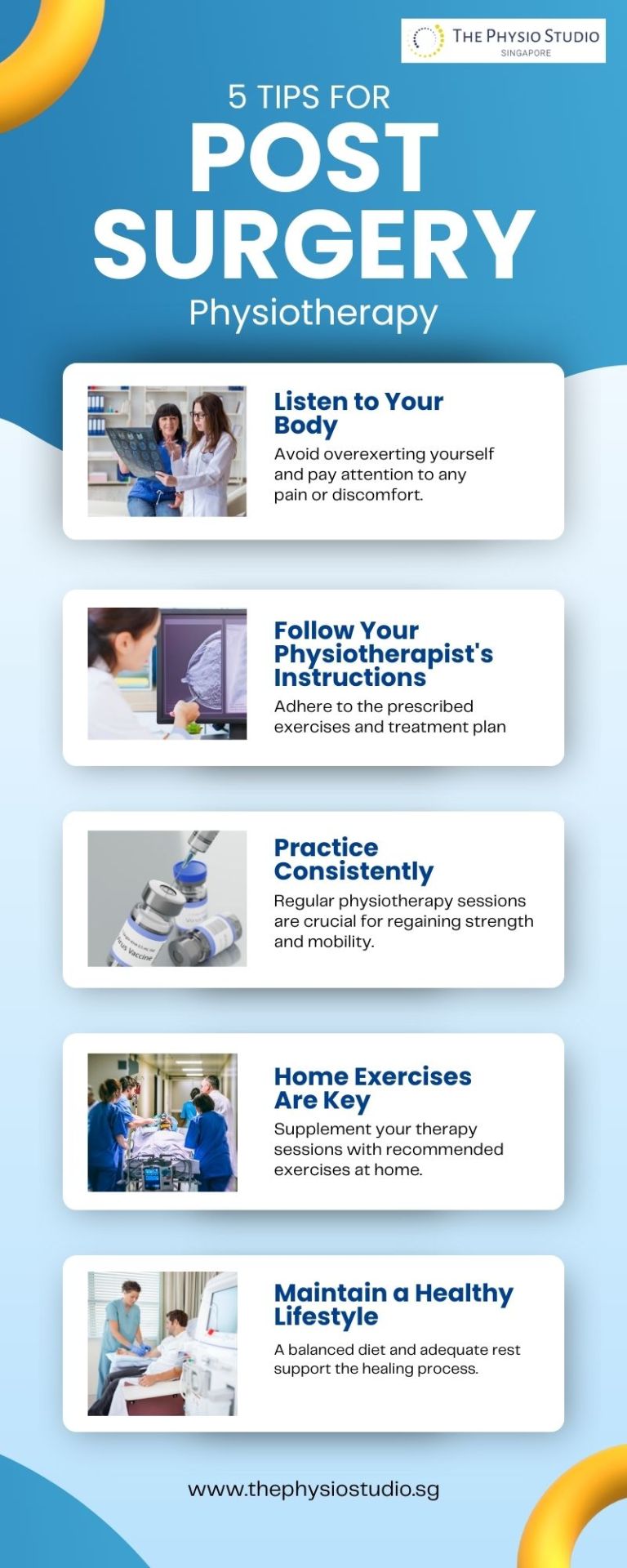#Post-Surgery Physiotherapy
Explore tagged Tumblr posts
Text
https://www.painflame.com/best-female-physiotherapist-gurugram/
Top Female Physiotherapists for Injury Recovery in Gurugram
Recover from injuries with the help of Gurugram’s leading female physiotherapists. Their personalized rehabilitation techniques are designed to accelerate recovery, reduce pain, and restore mobility. Start your treatment journey today!
#Female Physiotherapist#Physiotherapy Gurugram#Injury Recovery#Pain Relief#Sports Rehabilitation#Gurugram Physiotherapist#Chronic Pain Treatment#Back Pain Gurugram#Mobility Improvement#Post-Surgery Physiotherapy
0 notes
Text
Effective Physiotherapy for Knee Pain – Regain Mobility with PhysioAsia
Discover expert physiotherapy for knee pain at PhysioAsia. Our tailored treatment plans help reduce pain, restore movement, and prevent further injury without surgery. Whether you're recovering from an injury or managing chronic discomfort, our experienced physiotherapists provide the care and support you need to move freely again. Start your journey to a pain-free life with trusted physiotherapy solutions today.
Read More : https://penzu.com/p/763363a8beab24dc
#elbow pain physiotherapy#back pain treatment singapore#knee joint pain treatment#hip pain treatment#shoulder pain#pelvic pain physiotherapy#post surgery knee rehab
0 notes
Text
Rebuilding Lives After Stroke & Injury – How Neurological Physiotherapy Changes Everything

Have you or a loved one struggled with walking, speaking, or holding simple objects after a stroke or neurological injury?
🧠 Neurological physiotherapy is more than just exercise — it’s a science-backed path to restoring lost movement, strength, and independence.
At WS Clinic, our neuro physiotherapists help patients recover from conditions like:
Stroke
Parkinson’s Disease
Spinal Cord Injury
Multiple Sclerosis
Traumatic Brain Injury
We use cutting-edge techniques like gait training, muscle stimulation, mirror therapy, and task-based rehab — all customized to your body’s unique needs.
💬 “I could barely lift my hand after a stroke. Now I make tea for my family again. WS Clinic gave me my confidence back.” – Rajat V.
❤️ Recovery is possible. And it begins with one step.
📍 Visit us in Kirti Nagar or South Ex, Delhi 📞 Call: +91 88000-07740 🌐 www.wsclinic.org 📧 [email protected]
#physiotherapists#physiotherapy clinic#physiotherapy treatment#ws clinic delhi#best gynecology hospital#gynecologycare#orthopedic surgeon#Post-Surgery-Rehab
1 note
·
View note
Text
How Physiotherapy Helps Children Recover from Injuries and Surgeries
Discover how paediatric physiotherapy aids children in regaining mobility, strength, and confidence after injuries or surgeries. Improve function and prevent complications with expert care. Book a consultation with 7 Senses Pediatric Rehabilitation Centre today
#paediatric physiotherapy India#child injury recovery therapy#post-surgery physiotherapy for kids#physiotherapy after fracture in children#ACL rehab for children#neuro rehab for kids#therapy for muscle weakness in children#physiotherapy for cerebral palsy post surgery#7 Senses Pediatric Rehabilitation Centre
0 notes
Text
Post Surgery Physiotherapy in Singapore: A Key Step Towards Full Recovery

Recovering from surgery doesn’t end when you leave the operating room. In fact, it’s just the beginning. Post surgery physiotherapy is a vital part of the rehabilitation process, helping patients restore movement, regain strength, and return to daily activities safely. In Singapore, where healthcare standards are high and recovery time matters, this specialised care is essential for a smooth and complete recovery.
What is Post Surgery Physiotherapy?
Post surgery physiotherapy refers to a tailored rehabilitation programme designed to support recovery after various surgical procedures. This includes orthopaedic surgeries like knee replacements, spinal operations, or even abdominal surgeries. The goal is to reduce pain, improve flexibility, and rebuild strength in the affected area.
Physiotherapists work closely with patients to create individualised plans that align with their surgical outcomes and long-term goals.
Benefits of Post-Surgical Rehab
Engaging in physiotherapy after surgery offers a range of physical and psychological benefits:
Faster Healing: Stimulates blood flow and tissue repair
Pain Reduction: Techniques such as manual therapy and stretching ease discomfort
Restores Mobility: Helps regain joint function and movement
Prevents Complications: Reduces risk of stiffness, blood clots, and muscle loss
Builds Confidence: Supports a gradual and safe return to normal activities
Tailored Care in Singapore
In Singapore, patients can access a wide range of post surgery physiotherapy services in hospitals, specialised clinics, and home care settings. Therapists often work in collaboration with surgeons and other healthcare professionals to ensure that rehabilitation aligns with surgical expectations and safety guidelines.
Common Post-Surgery Conditions Treated:
Knee or hip replacement
Shoulder repair or rotator cuff surgery
Spinal surgery
ACL reconstruction
Abdominal or thoracic surgeries
Linking It to Other Conditions
Many patients undergoing post surgery physiotherapy also deal with related issues such as muscle weakness or referred pain. One common condition that often requires additional attention is physiotherapy for lower back pain. For example, patients recovering from spinal surgery or abdominal procedures may experience strain in the lower back due to changes in posture or movement habits. In such cases, physiotherapy can focus on strengthening the core and correcting posture to alleviate pain.
Conclusion
Whether recovering from a major operation or a minor procedure, post surgery physiotherapy is a crucial part of the healing journey. With expert care available across Singapore, patients can benefit from targeted rehabilitation that promotes quicker, safer, and more effective recovery. And for those also experiencing issues like physiotherapy for lower back pain, physiotherapists can design holistic programmes that address all areas of concern—ensuring long-term wellness and mobility.
0 notes
Text
#physiotherapy Brampton#refugee care Brampton#chiropractic therapy Brampton#acupuncture Brampton#orthotic therapy Brampton#massage therapy Brampton#laser therapy Brampton#concussion treatment Brampton#vestibular rehabilitation Brampton#motor vehicle injury rehab Brampton#workplace injury treatment Brampton#home physiotherapy Brampton#pain relief Brampton#injury recovery Brampton#musculoskeletal therapy Brampton#physical therapy Brampton#post-surgery physiotherapy Brampton#MVA rehab Brampton#WSIB physiotherapy Brampton#in-home physiotherapy Brampton
0 notes
Text

#post knee replacement care#senior knee surgery recovery#in-home physiotherapy Mumbai#Healkin recovery plan#elderly knee care
0 notes
Text
At FitFlex Physio, we believe that movement is medicine — and every individual deserves to live pain-free. As one of the most trusted physiotherapy clinics in Noida, we offer specialized treatments to restore strength, flexibility, and function for patients of all ages. Whether you’re dealing with neck pain, knee issues, or recovering post-surgery, our expert physiotherapists are here to support your healing journey.
#Physiotherapy near me#Chiropractor near me#Cupping therapy near me#back pain doctor near me#Physiotherapy in Noida#Neck pain doctor near me#Physiotherapy clinic in Noida#Sports injury doctor near me#Doctor for sciatica pain#Neuro Rehabilitation Centre Near me#Best chiropractor in Noida#Center for Pain Relief#best spine doctor in noida#Neuro rehabilitation Centre in India#back pain doctor in noida#Sciatica specialist doctor near me#Cupping therapy Noida#back pain treatment in noida#Best physiotherapist Noida#Manual therapy Noida#Back pain treatment Noida#Neck pain physiotherapy Noida#Knee pain relief Noida#Slip disc treatment Noida#Spondylitis physiotherapy Noida#Post-surgery rehabilitation Noida#Geriatric physiotherapy Noida#Pediatric physiotherapy Noida#Women's health physiotherapy Noida#Ergonomic advice Noida
0 notes
Text
Restoring Strength and Independence: Inside the Best Neurorehabilitation Centres in Kerala
In today’s fast-paced world, the impact of neurological disorders and post-operative recovery can be life-altering. Fortunately, advancements in rehabilitation sciences have made it possible to regain lost function, mobility, and confidence. Kerala, a state known for its progressive healthcare system and serene healing environment, is home to some of the most trusted and advanced neurorehabilitation centres in India. If you or your loved one is recovering from a stroke, brain injury, spinal surgery, or neurological condition, finding the right neurorehabilitation centre in Kerala can make all the difference. What is Neurorehabilitation? Neurorehabilitation is a comprehensive, multi-disciplinary approach to help individuals recover from disorders that affect the nervous system. This includes: Stroke Spinal cord injuries Brain injuries Parkinson’s disease Multiple sclerosis Cerebral palsy Post-operative neurological surgeries The goal is to optimize physical function, improve quality of life, and empower patients to live as independently as possible. Why Choose a Neurorehabilitation Centre in Kerala? Kerala offers the ideal setting for recovery, blending medical expertise with natural tranquility. Personalized Treatment Plans: Based on each patient’s diagnosis, progress, and personal goals. Ayurveda & Integrative Therapy Options: Some centres combine evidence-based medicine with Kerala’s rich tradition of holistic healing. Beyond Neurorehab: The Role of Post-Operative Rehabilitation Recovery doesn’t end after surgery. Whether it’s spinal surgery, joint replacement, or brain surgery, patients often require targeted therapy to regain mobility, reduce pain, and prevent complications. That’s where a post operative rehabilitation centre in Kerala becomes essential. These centers provide: Pain management and wound care Muscle strengthening and mobility training Balance and coordination exercises Breathing and cardio exercises (especially after thoracic or abdominal surgeries) Guidance for daily activities and reintegration into normal life Combining medical care with physical therapy ensures a smooth and complete recovery process. Physiotherapy: The Heart of Rehabilitation No recovery plan is complete without physiotherapy. The best physiotherapy clinic in Kerala will not only treat injuries but will also play a vital role in long-term recovery for neurological and post-surgical patients. Services typically include: Neuro-Physiotherapy: Focused on restoring movement and function after brain or spinal injuries. Orthopedic Physiotherapy: Especially crucial after joint replacements or fractures. Pediatric Physiotherapy: For children with developmental delays or neurological conditions. Geriatric Physiotherapy: Addressing age-related conditions, including stroke and Parkinson’s.
Electrotherapy & Manual Therapy: Pain relief and muscle activation.
Physiotherapy, when done well, can significantly expedite healing and improve independence.
Concluding Comments
If there is ever a case that affects rehabilitation for stroke, surgery, or even caring for a loved one with an abrupt diagnosis, Kerala certainly knows how to present world-class rehabilitation facilities. Finding the right neurorehabilitation center in Kerala, effective postoperative rehabilitation center in Kerala, or a great physiotherapy center in Kerala will considerably assist recovery along its path.
Rehabilitation is not treatment but a journey toward changing lives step by step.
#post-operative rehabilitation in Thrissur#rehab programs in Kerala#post-surgery physiotherapy in Kerala
0 notes
Text
How to Choose the Best In-Home Physiotherapist: The Ultimate Guide
An In-Home Physiotherapist provides professional physiotherapy services at your residence, offering personalized care for individuals with mobility limitations, seniors, or those who prefer home-based treatment. This convenient service ensures expert attention in a comfortable setting.
Contact Khy Physio today to schedule your appointment!
Website – www.khyphysio.com.au Call – +61 410 803 034 Email – [email protected]
#“mobile physio services melbourne”#“elderly physiotherapy home service”#“home visit physiotherapy melbourne”#“in-home physio melbourne”#“mobile physiotherapy melbourne”#“disability physiotherapy home service”#“chronic pain management physiotherapy at home”#“pediatric physiotherapy home visits”#“post-surgery rehabilitation at home”
0 notes
Text
Expert Elbow Pain Physiotherapy in Singapore | Physio Asia Therapy Centre
Struggling with elbow discomfort or limited mobility? Discover expert elbow pain physiotherapy at Physio Asia Therapy Centre. Our personalized treatment plans target conditions like tennis elbow, arthritis, and nerve compression using advanced techniques for lasting relief. Regain strength and flexibility with professional care in a supportive environment. Start your recovery journey today with trusted physiotherapists in Singapore.
Read More : https://joripress.com/elbow-pain-physiotherapy-the-complete-recovery-and-relief-guide
#elbow pain physiotherapy#back pain treatment singapore#knee joint pain treatment#shoulder pain#hip pain treatment#pelvic pain physiotherapy#post surgery knee rehab
0 notes
Text

#Physiotherapy HSR Layout#Pain Relief Therapy#Sports Injury Treatment#Post-Surgery Rehab#Muscle Pain Treatment#Back Pain Relief#Expert Physiotherapists#Joint Pain Therapy#Physiotherapy Near Me
1 note
·
View note
Text
https://www.painflame.com/best-physiotherapy-clinic-gurgaon/
Physiotherapy Services in Gurgaon for Recovery
Discover effective physiotherapy services in Gurgaon to recover faster and relieve pain. We offer advanced rehabilitation physiotherapy services and post-surgery physiotherapy and pain management to ensure a complete recovery. Personalized home care is available for seniors.
#Physiotherapy services#Best physiotherapist near me#Pain relief treatments#Sports injury recovery#Post-surgery rehabilitation#Manual therapy physiotherapy#Chronic pain management#Affordable physiotherapy Gurgaon#Home-based physiotherapy services#Back and neck pain physiotherapy
0 notes
Text

Post-surgical rehabilitation in Bandra, Mumbai, focuses on personalized care to help you recover strength, mobility, and function after surgery. Expert therapists use advanced techniques to ensure effective healing and improve your overall quality of life. Get back to your best with tailored recovery programs designed for optimal outcomes.
#post surgical rehabilitation#post surgery rehabilitation#rehabilitation after surgery#post surgery physical therapy#post surgery physiotherapy
0 notes
Text
5 Tips to Accelerate Your Post-Surgery Recovery
Post surgery physiotherapy plays a vital role in regaining strength and mobility. By following these five essential tips, you can optimize your recovery process. Listen to your body, adhere to your physiotherapist's guidance, practice consistently, incorporate home exercises, and maintain a healthy lifestyle. With dedication and proper care, you'll be well on your way to a full recovery.

0 notes
Text
#physiotherapy Brampton#refugee care Brampton#chiropractic therapy Brampton#acupuncture Brampton#orthotic therapy Brampton#massage therapy Brampton#laser therapy Brampton#concussion treatment Brampton#vestibular rehabilitation Brampton#motor vehicle injury rehab Brampton#workplace injury treatment Brampton#home physiotherapy Brampton#pain relief Brampton#injury recovery Brampton#musculoskeletal therapy Brampton#physical therapy Brampton#post-surgery physiotherapy Brampton#MVA rehab Brampton#WSIB physiotherapy Brampton#in-home physiotherapy Brampton
0 notes